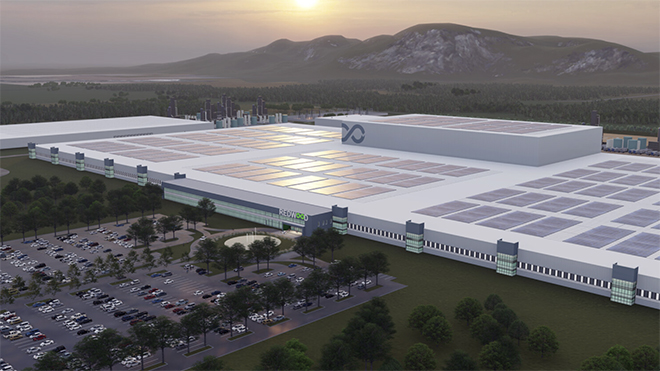Redwood Materials, the battery materials firm founded by Tesla cofounder JB Straubel, has announced a partnership with Ford. The two companies will work together to “create a closed loop for battery recycling and a domestic supply chain for critical battery materials.”
Ford also made a strategic investment of $50 million in Redwood.
“Excited to work with Ford who shares our vision of making EVs sustainable & affordable, by localizing the existing complex supply chain, creating pathways for their end-of-life EVs, recycling batteries & increasing battery production, right here in the US,” Redwood tweeted.
“The Ford and Redwood vision begins with incorporating battery recycling into Ford’s American battery production strategy, integrating recycled battery materials, both scrap from battery production and batteries at the end of their useful life, into the battery supply chain to drive down costs, environmental footprint and secure a critical battery material supply that Ford will need to continue to ramp their electric vehicle production,” said the automaker.
Ford is (hopefully) going to need plenty of batteries once its F-150 Lightning electric pickup truck goes on sale, and Redwood’s recycled battery materials could come in mighty handy.
“Our partnership with Redwood Materials will be critical to our plan to build electric vehicles at scale in America, at the lowest possible cost and with a zero-waste approach,” said Ford CEO Jim Farley. “As part of this relationship, we’re discussing how Redwood could supply Ford’s American battery facilities to ensure a steady, domestic source of sustainable battery materials to fuel the production of Ford electric vehicles.”
“Increasing our nation’s production of batteries and their materials through domestic recycling can serve as a key enabler to improve the environmental footprint of US manufacturing of lithium-ion batteries, decrease cost and, in turn, drive up domestic adoption of electric vehicles,” said JB Straubel. “Redwood and Ford share an understanding that to truly make electric vehicles sustainable and affordable, we need to localize the existing complex and expensive supply chain network, create pathways for end-of-life vehicles, ramp lithium-ion recycling and increase battery production, all here in America.”
Redwood says it can recover up to 95% of materials including nickel, cobalt, lithium and copper, and recently announced plans to manufacture anode copper foil and cathode materials.
Ford also recently announced a joint venture with SK Innovation, BlueOvalSK, which will supply batteries for Ford vehicles.
Ford isn’t the only automaker working to “close the loop.” Volkswagen recently opened a pilot battery-recycling plant in Germany. GM recently reached an agreement with Canada-based Li-Cycle to recycle battery manufacturing scrap.
Sources: Electrek, Green Car Reports

















































